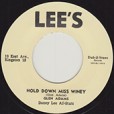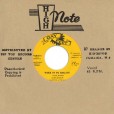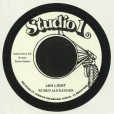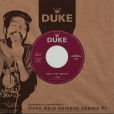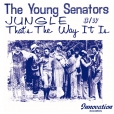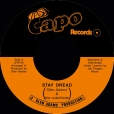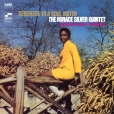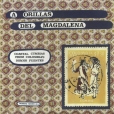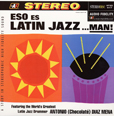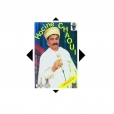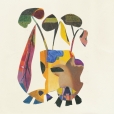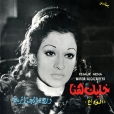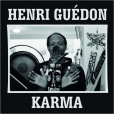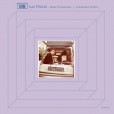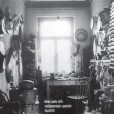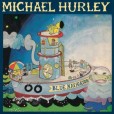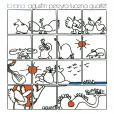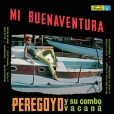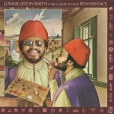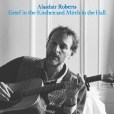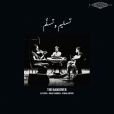Your basket is empty

Easy-squeeze, rocking steady loveliness from 1968.
‘Classic Vinyl.’
Chocolate Mena leading three lineups — featuring Joe Henderson, Jerome Richardson, Alfredo Armenteros, and co — through Lalo Schifrin and Duke Pearson arrangements of core Latin and Jazz classics.
Electrifyingly intense Chaoui music from the Aurès region of Algeria, booted into the future, with drum machines, phased gesba flute and reverbed-out vocals.
‘Their first collaborative recording: four beautifully recorded excursions, threading crystalline drum-work through a sparkling haze of guitars and electronics.
‘The opener Dessus begins with Reidy’s distinctive just-intonation guitar figures, shimmering over a delicate substratum of Befli’s brushwork and bass drum accents. As in all of Reidy’s recent work, the guitarism evades cliché via unfamiliar tuning and electronic processing. Hanging almost inaudibly in the background for much of the piece, a rush of synthetic tones surges into the foreground to end it. Oben is built from kinetic patterns of picked guitar arpeggios, locking into irregular grooves with Belfi’s drums, which move from elegant rolls and cymbal patter to driving closed hi-hats and explosive rock interjections. Around the traditional instruments and across the stereo field, electronic sounds swarm and swirl, fizzing and popping in a sun-drenched soundscape that at points suggests both vintage analogue synth destruction and glitching harmonies. Alto begins in similar territory but turns proceedings up a notch, eventually settling into a propulsive 6/8 groove of shifting drum accents, manically strummed 12 string acoustic, and burbling synth chords.
‘The B side is dedicated to the fifteen-minute Up, where the strategies adopted on the other pieces are put in the service of a more relaxed, slowly unfolding epic. Anchored by a steady pulse throughout, the piece combines chiming guitars, dubbed-out bass lines and constantly adjusted percussive details into a complex flux of sound. Change is at once so subtle and so ever-present that, at any given moment, the listener can never be entirely sure quite how they got there.’
An invigorating sampling of the prodigious output of this joint in Matariya, Cairo. Mahragan, or electro-shaabi, stripped down Sardena-style: auto-tuned, maxed-out vocals, thumping beats, synths, wild effects.
Warda Ftouki is one of the great Arab divas of the twentieth century.
Aka Warda Al-Jazairia, Warda the Algerian was forced to leave Algeria in 1956, when FLN guns were discovered in her dad’s nightclub. (Warda was a lifelong, unflinching supporter of independence.)
Aged twenty, now singing in Beirut cabarets, she became the protege of Mohammed Abdel Wahab. Returning to Algeria after independence in 1961, she took a ten year break from singing, because this was forbidden by her new husband. She left him in 1972, moving to Egypt, where she married Baligh Hamdi.
Here she is in 1973, singing a composition by Hamdi, backed by a full Egyptian orchestra, including electric guitar and organ, in front of a euphoric, adoring crowd.
Wonderful music — swirling and grooving with dazzling virtuosity; imperiously funky and giddily soulful.
The second LP of the mainstay of modern Caribbean/Antilles music, released in 1975 on a small Parisian label, La Voix Du Globe. It maintains the pressure of his debut Cosmozouk Percussion, incorporating African, Latin and West Indies styles like Gwoka, Mazouk, Biguine, Bel-Air and Bomba, together with swirling cosmic synths and intense roots percussion. Bomb.
‘One of the all-time great records of improvised music from Europe. Period. Blisteringly hot. Uncompromisingly inventive. Staggeringly beautiful. And insanely rare. Originally issued in the mid ‘70s on FMP, featuring the legendary Schlippenbach Trio — with Evan Parker and Paul Lovens — joined by Peter Kowald.
‘Just the first track, an incredible twenty-plus-minutes burner called Range, is worth the price of admission — as punk rock as free music gets, it shows Parker’s spectacular capacity for high-octane blowing. Kowald adds a chewy, molasses bottom to the group, offsetting Lovens’ flinty metal, stick and skin and Schlippenbach’s hyper-focused intensity.
‘A stone cold classic of creative music. Remastered from original tapes.’
LP from Cien Fuegos.
A treat for those of us who like their Alasdair Roberts straight-up and hardcore. A pointed, deep selection of mainly Scottish folk songs, recorded live in the studio; beautifully sung, with minimal, exquisite accompaniment by acoustic guitar, or sometimes piano. Sexual oppression, Scottishness, political resistance; stray cows, mystical horses, waterbird royalty. Stiff shots of rapture, fighting talk, heartbreak, and tragedy. Terrific.
‘Elegantly combines the delicacy of classical Arabic music, the raw expressiveness of Egypt’s countryside music, and the spontaneity of free improvisation, carefully obliterating the artificial separation between acoustic and electronic instruments. Despite the remarkable absence of any percussion or drums, The Handover is an extremely groovy band, with an ability to slow down and accelerate the tempo in almost telepathic synchronization at exactly the right moments.
‘Alongside the tight ensemble playing there is plenty of room for individual expression as the oud, synthesizer and violin take turns playing solos on top of repetitive riffs. Native Alexandrian Ayman Asfour plays violin with breathtaking beauty, not afraid to make it buzz, squeak and rattle. Belgian/Norwegian keyboardist Jonas Cambien makes the synthesizer a melodic instrument in its own right, at times evoking almost classical Maqam, at other moments coming straight out of an Egyptian wedding. The oud forms the backbone, as Aly Eissa’s solos guide the listener from minimalist, meditative drones, to a compelling climax, and back to earth.
‘There is much more to The Handover’s sound than the obvious references to Arabic and Egyptian music. The opening drone section of the album is pushed towards abstraction and even noise, and the vintage Farfisa organ gives the music a touch of 70s psychedelic rock. The repetitive riffs can be reminiscent of Embryo’s experiments combining krautrock with influences from the middle-east, but the use of repetition to induce trance dates way back in Egyptian music, and is present in many rituals like Sufi and moulid celebrations. The composed melodies on this album couldn’t be possible without Eissa’s deep love for this music. And what The Handover does with this composed material couldn’t be possible without three strong individual voices, their love to play music together and their dedication to push the traditions forward.’
